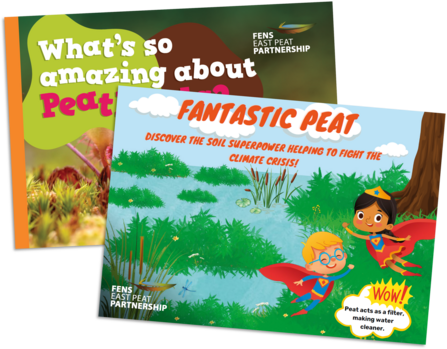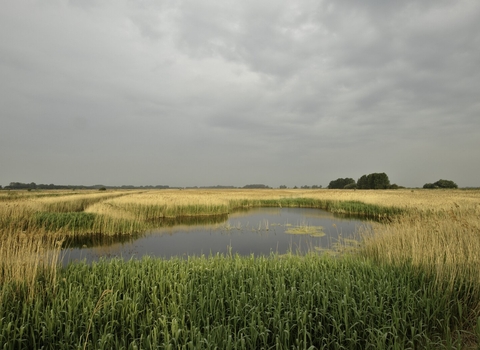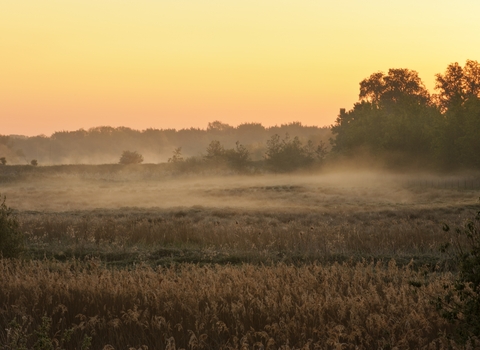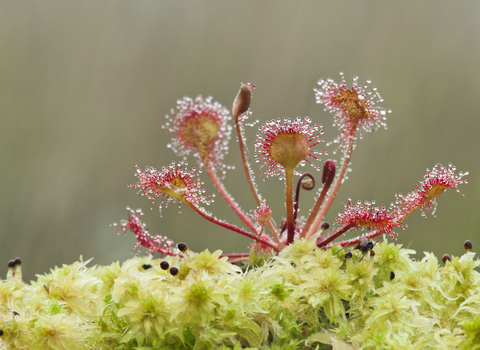Fens East Peat Partnership (FEPP)
The Fens East Peat Partnership (FEPP) is working on restoring peatland sites in low-lying areas of Lincolnshire, Cambridgeshire, Norfolk and Suffolk to reduce greenhouse gas emissions and keep carbon locked in, benefitting the environment, people and wildlife.
Fens East Peatlands – an urgent problem
99% of Fens East precious once waterlogged peatlands have been damaged by drainage for agriculture, urbanisation and by peat extraction. The peat has become dry and exposed to the elements, and instead of storing and taking up carbon, it is emitted into the atmosphere as CO2. Lowland peat areas are a major source of greenhouse gas emissions. The damage causes the loss of specialised native species, rich vegetation cover and peat forming ecosystems and the remaining fragmented peatlands are vulnerable.
Urgent measures are needed to address this situation. The vast stores of carbon in our healthy peatlands need long-term management. Carefully managed and monitored peatland restoration work will eventually lead to the capture of more carbon and more places for wildlife to thrive.
What does the Fens East Peat Partnership do?
FEPP delivered a successful Nature for Climate Peatland Discovery Grant between January 2022 and August 2023 which enabled us to carry out detailed surveys on the extent of degradation, peat depth and archaeology on 20 sites across Cambridgeshire, Lincolnshire, Norfolk and Suffolk. With this information and working with landowners and farmers, we developed restoration plans for the sites to restore the damaged peat.
In September 2023 The Fens East Peat Partnership was awarded a Nature for Climate Restoration Grant to undertake the restoration work on sixteen of the sites we began work on in the Discovery Grant period.
The restoration work will take place between now and March 2025. Work includes securing the sites hydrologically to manage water levels within the site and to ensure surrounding land is not impacted by the changes. As the sites are restored, greenhouse gas emissions will be reduced and Fen peatland biodiversity will begin to develop and increase.
Resources for schools
We've created activity booklets for primary and secondary age children to help them to understand the importance of peat. From learning more about the carbon cycle, to finding out about the wildlife that calls peatlands its home. Our facts, activities and quizzes have been made to inspire children of all ages.

Click the buttons below to download your activity booklet for free.
Why are peatlands important?
Wildlife havens
As temperatures rise and weather extremes occur more frequently, the peatland habitats will provide havens of shelter, food and breeding sites for species, helping to improve and sustain the rich biodiversity of the Fens.
A natural solution to dealing with climate change
Healthy peatlands no longer emit large quantities of greenhouse gases and become carbon stores. They also have a cooling effect, helping to reduce temperatures.
Natural flood management
Peatlands can help to store flood water and slow the flow of water across the area.
Improving water quality
Peatlands and their habitats are natural water filters, helping to clean water meaning less energy and cost is required by water companies to treat water.
Paleoenvironment
By studying the history of the soils and geology of the area we can learn what has happened in the past and apply this knowledge to help us find ways to adapt and manage the effects of climate change.
Visiting our Fen peatlands
Across the Fens at sites in the care of Lincolnshire Wildlife Trust and FEPP’s partners there are many wonderful wild places where you can stroll boardwalks and footpaths, pedal along cycle trails and cruise peaceful waterways to discover the unique creatures and plants that live there.
Willow Tree Fen, Lincolnshire
Many iconic wetland species are now thriving in the shallow meres, seasonally flooded pastures, hay meadows and reedbeds. The reserve’s resident cranes were the first in Lincolnshire to breed successfully in 400 years.
Visit Willow Tree Fen
Great Fen, Cambridgeshire
Great Fen is a vast fenland landscape with a dramatic and fascinating history. It is home to two National Nature Reserves, Holme Fen and Woodwalton Fen, protected for their unique habitat and the varied wildlife they support.
Visit the Great Fen
Lakenheath Fen, Suffolk
The RSPB has transformed former carrot fields into a wetland home for kingfishers, common cranes, otters and water voles. Now there is a vast stretch of reedbeds and grazing marshes bursting with life, as well as rich woodlands that come alive with song in spring.
Visit Lakenheath Fen
Wicken Fen National Nature Reserve, Cambridgeshire
A raised boardwalk and lush grass droves allow easy access to a lost landscape of flowering meadows, sedge and reedbeds, where you can encounter rarities such as hen harriers, water voles and bitterns.
Visit Wicken Fen
The Fens East Peat Partnership
The Fens East Peat Partnership is funded by a Discovery Grant from the Nature for Climate Peatland Grant Scheme administered by Natural England. The partner organisations are Natural England, Lincolnshire Wildlife Trust, The National Trust, Norfolk Wildlife Trust, RSPB and the Wildlife Trust for Beds, Cambs and Northants.

Wicken Fen Vision
Our project partners, the National Trust have a 100-year plan to create a diverse landscape for wildlife, people and carbon at Wicken Fen. It’s the National Trust’s oldest nature reserve and one of the last surviving fragments of undrained fen in the East fens.
Get in touch
For more information about the Fens East Peat Partnership, please contact:
Tel: 01507 526667
Email: fepp@lincstrust.co.uk








